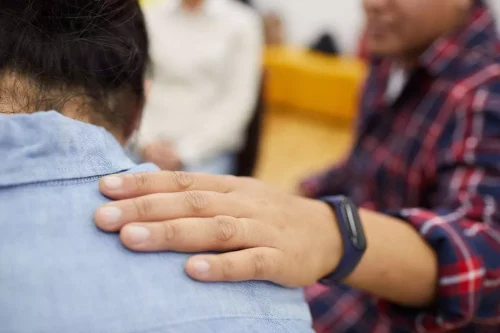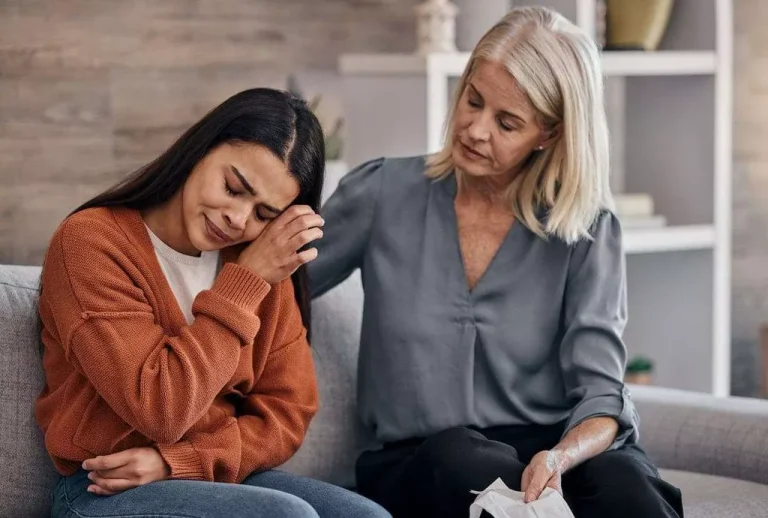
In January 2020, more than 6 million people reportedly participated in Dry January, a campaign to reduce alcohol consumption organized by Alcohol Change UK. Follow-up research suggested that most tended to drink in healthier amounts afterward. If you answer “yes” to two to three questions, your symptoms align with mild AUD. If you answer “yes” to four to five questions, your symptoms align with moderate AUD. If you answer “yes” to six or more questions, your symptoms align with severe AUD.
What are some of the benefits of quitting drinking?
There is a comprehensive legal, educational, and commercial empire that prefers if you keep drinking. Drinkers get into more expensive legal trouble, they spend more money at restaurants, and schools are often attended based on their reputation as a party school alone. Alcohol is the only drug where people think you have a problem if you don’t do it. As part of my commitment to change, I identified alcohol as the main problem and control it. You will need powerful reasons to stay committed to it; otherwise, environmental and peer pressures will drag you off the wagon.
What Is Heavy Drinking?
- It’s important to note that these changes will vary depending on how much alcohol you typically consume, how frequently you drink alcohol, and other individual factors.
- You might also hold onto a nonalcoholic drink instead, ask a friend to support you in difficult situations or simply exit early if temptation gets too strong, the NIAAA suggests.
- Some people are able to stop drinking on their own or with the help of a 12-step program or other support group (see below for links).
- Growing evidence demonstrates the harmful effects of alcohol, including a heightened risk of high blood pressure, heart disease, and liver disease.
You could speak to your GP or a member of their team, or there are a number of national alcohol support services that you can confidentially self-refer to for advice and support. Whether you have a diagnosed mental health disorder or not, therapy is a positive tool for long-term recovery. A therapist can help you uncover key insights regarding your alcohol use and offer tools that will set you up for successful and satisfying long-term recovery. Alcohol cravings are an inevitable part of detoxing and getting sober. When those cravings kick in, it’s normal to feel anxiety, fear or shame.
Change how you think about drinking & alcohol
You might run into obstacles along the way that tempt you to drink. Keep in mind the reasons you chose to cut back on or quit alcohol. Feeling at your best physically can boost resilience and emotional strength, equipping you to weather challenges that trigger the desire to drink. If you turn to alcohol to manage emotional distress, the added overwhelm can prompt the urge to drink, making success seem even more out of reach. Turner notes the importance of bringing along what is alcoholism a trusted support person when attending events that involve alcohol. It’s often easier to turn down a drink when you don’t have to do it alone.
Alcohol support services
People with alcohol use disorder can’t stop drinking even when it causes problems, like emotional distress or physical harm to themselves or others. Looking to take on a sobriety challenge, like Dry January? Or maybe it’s a pregnancy that made you realize it’s time to stop drinking. Or maybe you’re just looking to improve your health, wake up hangover-free and give your liver (and your heart and brain) a break. According to a new perspective article from the International Agency for Research on Cancer (IARC), people who stop drinking alcohol can lower their risk of developing certain cancers. Alcohol can increase the risk of high blood pressure and certain types of cancer, among other harms.

Satisfying hobbies can distract How to Stop Drinking you from wanting to drink, but they also help you relax — something everyone needs to do. It’s common to experience difficulty when making big changes, but good self-care practices can help you manage overwhelming feelings and take care of your mind and body. Finding or reaching out to other sober people can also help. Also, all types of alcoholic beverages, including beer, wine and spirits, are linked to cancer, regardless of their quality and price. “It also reduces the risk of heart disease and a number of other conditions,” he added. They discovered that cessation does decrease the risk of some types of cancers, especially those that affect the mouth and esophagus.

Tips to cut back on drinking

And almost 43% spent between $250 and $500 on alcohol a month. Think getting treatment to reduce your alcohol consumption is expensive? Almost 77% of members said they’re now drinking less, and almost 65% said they’re often or always hitting their goal.
- In this post, I’ll show you how to stop drinking using simple techniques, mindset shifts, and relying on the support systems around you.
- And for others it’s a combination of factors that motivates their move to sobriety.
- One of the most common causes of relapse after a person has quit drinking is continuing the same lifestyle as before recovery.
Try taking a class, joining a church or a civic group, volunteering, or attending events in your community. Lean on close friends and family – Having the support of friends and family members is an invaluable asset in recovery. If you’re reluctant to turn to your loved ones because you’ve let them down before, consider going to couples counseling or family therapy. Whether you choose to tackle your =https://ecosoberhouse.com/ alcohol addiction by going to rehab, getting therapy, or taking a self-directed treatment approach, support is essential. Recovering from alcohol addiction or abuse is much easier when you have people you can lean on for encouragement, comfort, and guidance. Keep a record of your drinking to help you reach your goal.

For some people, their why is centered around relationships. For others, it’s their careers that have taken a hit due to the effects of their drinking. And for others it’s a combination of factors that motivates their move to sobriety. Willpower is the hard way to quit drinking and not the Easyway to quit drinking. As long as you use a drug-free method that also ensures that you understand the psychological aspects of alcohol addiction – these tips will help you. Prepare yourself for those times when someone is going to offer you a drink.
- But that advice changes if you’re living with alcohol use disorder.
- Alcohol recovery is a process—one that often involves setbacks.
- If you answer “yes” to six or more questions, your symptoms align with severe AUD.
- Recovering from alcohol addiction or abuse is much easier when you have people you can lean on for encouragement, comfort, and guidance.
- If you’re living with alcohol use disorder, quitting drinking is important for your health.
What are the benefits of giving up alcohol?
Assess what needs to change to decrease the impact or frequency of that trigger. If it’s stress-related, find healthy ways to manage and cope, including going to therapy, delegating tasks and surrounding yourself with people who can support you. If it’s local haunts, take different routes to avoid those locations. Belinda Gordon-Battle is a licensed clinical therapist and life consultant based in Miami while providing therapeutic services across the globe. BGB, as her clients and colleagues call her, is an advocate of “removing the stigma” and normalizing the therapeutic process.



